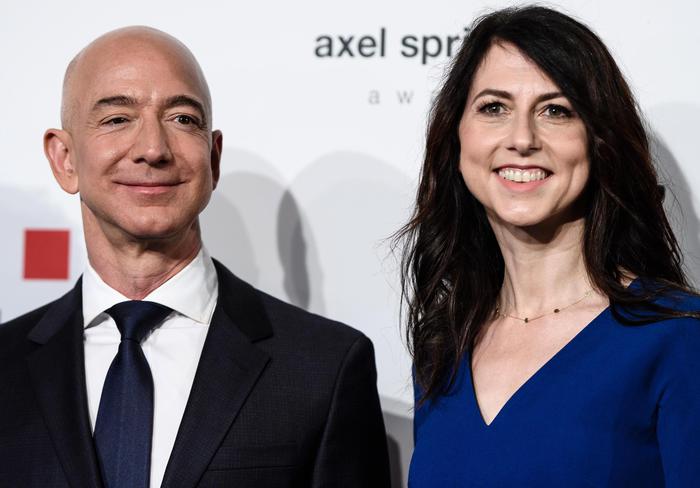Just a small sacrifice, a one-time payment to fight starvation in the world: David Beasley, executive director of the World Food Programme, claimed again that 42 million people are at risk of dying and called on billionaires like Elon Musk and Jeff Bezos – the two richest men in the US – to chip in and donate 6 billion dollars.
Beasley spoke to CNN in an interview aired on Tuesday: “The government are tapped out”, he said: “42 million people are literally going to die if we don’t reach them”.
According to Forbes, Elon Musk’s net worth is about 257 billion dollars, while Amazon’s creator Jeff Bezos’s is 157 billion dollars. One might think that Musk – the wealthiest man in the world – could use a fraction of his assets to help out, rather than get busy trying to defy Mark Zuckerberg – fourth richest man in the US – in an improbable duel in Italy (in August the story held sway in Italian newspapers for days – would they meet in Rome, in the Coliseum, or the Circo Massimo? The Italian Secretary for Culture was ecstatic, before the Facebook creator dampened the enthusiasm and dismissed the idea).
In truth, many American super-rich do donate a lot of money. The Bill and Melinda Gates Foundation is still financing projects after the couple divorced (Bill Gates is the third richest man in the US), and Melinda Gates’s company, Pivotal Ventures, is also funding efforts to get more women into politics.
Billionaire, philanthropist and novelist MacKenzie Scott – Bezos’s former wife – announced at the end of 2022 that her donations since 2019 have totaled more than $14 billion, funding wildly different projects, with no formal application process and apparently no strings attached.

But of course, one thing is handing out money to projects one has selected and approved, and entirely another is giving money to a United Nation’s agency such as the WFP, especially in today’s climate of disaffection towards the UN’s role in the world.
It isn’t the first time that Beasley (also former governor of South Carolina, at WFP’s helm since 2017) tackles the issue. He was already involved in a high-profile Twitter quarrel with Tesla’s founder in 2021 and again in 2022 – on the same topic. In 2021, Musk tweeted back “If WFP can describe on this Twitter thread exactly how $6B will solve world hunger, I will sell Tesla stock right now and do it. But it must be open-source accounting, so the public sees precisely how the money is spent”. That amount of money would be about 2% of Musk’s wealth.
Beasley replied that “$6B will not solve world hunger, but it WILL prevent geopolitical instability, mass migration and save 42 million people on the brink of starvation”. And, he added, “I can assure you that we have the systems in place for transparency and open-source accounting. Your team can review and work with us to be totally confident of such”.
In 2020, Beasley accepted the Nobel Peace Prize on behalf of the WFP “for its efforts to combat hunger, promote peace in conflict-affected areas, and prevent the use of hunger as a weapon of war and conflict”. Starvation is also one of the most dramatic motivations for people to migrate.
The quarrel has deep roots. Philanthropic or not, America’s billionaires – there are 756 of them – become wealthier every year. According to the website Statista, in the first quarter of 2023, 69 percent of the total wealth in the United States was owned by the top 10 percent of earners. In comparison, the lowest 50 percent of earners only owned 2.4 percent of the total wealth. The gap keeps growing.
As of December 2022, MacKenzie Scott was the fifth richest woman in the US, with an estimated fortune of about $26 billion. Scott divorced Amazon founder and executive chairman Jeff Bezos in 2019, and as part of the settlement, received a 4% stake in Amazon. That same year, she vowed to give away her “disproportionate amount of money” and to “keep at it until the safe is empty.”












